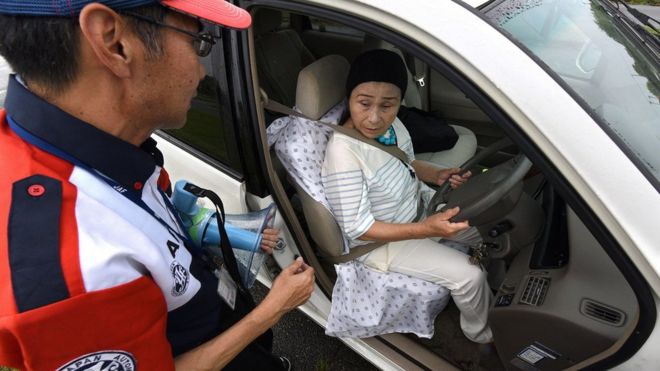- Sep 22, 2013
- 4,956
- 250
- 85
Hollywood (USA) has been making a plethora of films (from all kinds of historical eras including the modern age) about urban crime: State of Grace, King of New York, Gangs of New York, New Jack City, Escape from New York, Hoodlum, etc.
Urbanization has come hand-in-hand with governance and civics paranoia.
Law enforcement in the city requires an attention to pedestrian ethics, which is perhaps why we see a great deal of 'vigilantism-daydreams.'
Is this sort of 'urban anthropology' folklore or is it a kind of 'dialogic arson'?
It seems we need focused 'traffic-management' and a sensitivity towards the 'movie hysteria' that American youth are exposed to these days; otherwise, we're just making movies.
====
Raj was an immigrant from Armenia who was living in a modest NYC apartment while working for an Italian restaurant in the Bronx. What he didn't know was that his employers, the Fratelli Family, was a major underground mafia organization. The restaurant, Fratelli Fetuccine, would smuggle narcotics, host corrupt cops working for their mafia family, while simultaneously boasting a zesty Italian-cuisine menu (and terrific wines). Raj worked as a waiter and kitchen-assistant (and sometimes as a delivery-boy).
One day, Raj read a story in the New York Post about a mysterious mafia-related narcotics smuggling operation that stretched from NYC to British Columbia and which revolved around a legitimate business front (which the police hypothesized was some unnamed Italian restaurant). Raj felt goosebumps and wondered if Fratellig Fetuccine was involved somehow, but he felt sure that his boss (Marco Fratelli) was too jovial to be involved in mafia-related activity. Nevertheless, he decided to talk to the writer of the New York Post story --- a female journalist named Ellen Biondi.
When Raj walked into Ellen's office at the New York Post, he was immediately drawn to her good looks and lush blonde hair. She told him her family was originally from Sicily and that her father, a NYPC officer, was killed in a mafia-crossfire, inspiring Ellen to become a journalistic investigator of mafia activity in NYC. Raj told Ellen he worked at Fratelli Fetuccine and that he was 'lightly nervous' his boss may be connected to the mafia, and Ellen told him to keep an eye out for anything suspicious and let her and the NYPD know.
Two months later, the dead body of an NYPD officer was discovered behind the dumpster in the alley behind Fratelli Fetuccine and Raj was convinced his boss was connected to the mafia and the narcotics-operation described by Ellen in the New York Post. Raj was in love with Ellen (and the two had been dating now for over a month), so he decided to become a 'masked vigilante,' prowling NYC dressed as a self-proclaimed 'crime prophet' and interrogating young men on the street to see if they knew anything about Fratelli Fetuccine.
One day before Raj was killed (by Marco Fratelli), he was able to send a note to Ellen at the New York Post:
"Ellen, you know I love you, so you have to be careful about who you transmit this information to; the Fratellis are the mafia family in question investigated in your article. Their restaurant serves as the base of operations and as a legal front for their activities. I was able to assassinate Jon Tweed (corrupt NYPD cop) and Stu Fratelli (consultant of the narcotics operation) with my silencer-pistol, but now I fear for my life. I hope my decision to become a 'pro-American vigilante' helps you and protects you, and maybe your journalism can really persuade the right politicians. I'll feel better about being an immigrant!"
====
State of Grace (Film)

Urbanization has come hand-in-hand with governance and civics paranoia.
Law enforcement in the city requires an attention to pedestrian ethics, which is perhaps why we see a great deal of 'vigilantism-daydreams.'
Is this sort of 'urban anthropology' folklore or is it a kind of 'dialogic arson'?
It seems we need focused 'traffic-management' and a sensitivity towards the 'movie hysteria' that American youth are exposed to these days; otherwise, we're just making movies.
====
Raj was an immigrant from Armenia who was living in a modest NYC apartment while working for an Italian restaurant in the Bronx. What he didn't know was that his employers, the Fratelli Family, was a major underground mafia organization. The restaurant, Fratelli Fetuccine, would smuggle narcotics, host corrupt cops working for their mafia family, while simultaneously boasting a zesty Italian-cuisine menu (and terrific wines). Raj worked as a waiter and kitchen-assistant (and sometimes as a delivery-boy).
One day, Raj read a story in the New York Post about a mysterious mafia-related narcotics smuggling operation that stretched from NYC to British Columbia and which revolved around a legitimate business front (which the police hypothesized was some unnamed Italian restaurant). Raj felt goosebumps and wondered if Fratellig Fetuccine was involved somehow, but he felt sure that his boss (Marco Fratelli) was too jovial to be involved in mafia-related activity. Nevertheless, he decided to talk to the writer of the New York Post story --- a female journalist named Ellen Biondi.
When Raj walked into Ellen's office at the New York Post, he was immediately drawn to her good looks and lush blonde hair. She told him her family was originally from Sicily and that her father, a NYPC officer, was killed in a mafia-crossfire, inspiring Ellen to become a journalistic investigator of mafia activity in NYC. Raj told Ellen he worked at Fratelli Fetuccine and that he was 'lightly nervous' his boss may be connected to the mafia, and Ellen told him to keep an eye out for anything suspicious and let her and the NYPD know.
Two months later, the dead body of an NYPD officer was discovered behind the dumpster in the alley behind Fratelli Fetuccine and Raj was convinced his boss was connected to the mafia and the narcotics-operation described by Ellen in the New York Post. Raj was in love with Ellen (and the two had been dating now for over a month), so he decided to become a 'masked vigilante,' prowling NYC dressed as a self-proclaimed 'crime prophet' and interrogating young men on the street to see if they knew anything about Fratelli Fetuccine.
One day before Raj was killed (by Marco Fratelli), he was able to send a note to Ellen at the New York Post:
"Ellen, you know I love you, so you have to be careful about who you transmit this information to; the Fratellis are the mafia family in question investigated in your article. Their restaurant serves as the base of operations and as a legal front for their activities. I was able to assassinate Jon Tweed (corrupt NYPD cop) and Stu Fratelli (consultant of the narcotics operation) with my silencer-pistol, but now I fear for my life. I hope my decision to become a 'pro-American vigilante' helps you and protects you, and maybe your journalism can really persuade the right politicians. I'll feel better about being an immigrant!"
====
State of Grace (Film)



